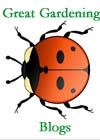Worms make ideal class pets! They don’t need grooming or exercising nor do they live in cages that need regularly cleaning out. They will also survive over the school holidays without being fed every day.
By keeping a wormery not only would you be acquiring a trouble free member of the class – and how often does that happen? – but you would also be provided with a very worthwhile educational resource. It would provide the children with a practical way of taking part in a recycling project and also fits in well with the science curriculum. On top of all of that the worms will produce an end product that can be used in the school garden.
To learn more about wormeries click here
To make a mini version of a wormery for observation purposes click here
To read more about earthworms click here
By keeping a wormery not only would you be acquiring a trouble free member of the class – and how often does that happen? – but you would also be provided with a very worthwhile educational resource. It would provide the children with a practical way of taking part in a recycling project and also fits in well with the science curriculum. On top of all of that the worms will produce an end product that can be used in the school garden.
To learn more about wormeries click here
To make a mini version of a wormery for observation purposes click here
To read more about earthworms click here






















